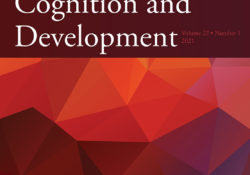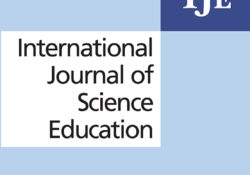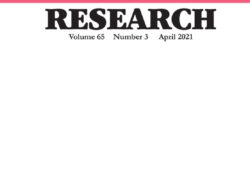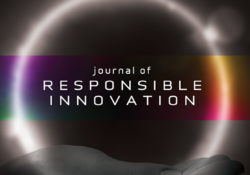tandfonline.com har udgivet en rapport under søgningen “Teacher Education Mathematics”: Abstract Abstract Scientists rely heavily on tree-ring records to better understand climate variability of the past millennium. Tree rings can also be utilized to give students a window into paleoclimate research, the methods scientists use, and the importance of scientific findings. Here, we present five online labs that introduce undergraduate students to the field of dendrochronology. Students learn about foundational tree-ring concepts and are guided to use many of the same tools and strategies as scientists, including exploring important field sites, measuring tree-ring data from those sites, using online paleoclimate databanks, and evaluating climate trends and extremes. The labs have been classroom tested and were modified based on a professional assessment, and faculty and student reviews. Faculty and student surveys… Continue Reading →
Like this:
Like Loading...

tandfonline.com har udgivet en rapport under søgningen “Teacher Education Mathematics”: ABSTRACT ABSTRACT Background: Scientific thinking is an essential learning goal of science education and it can be fostered by inquiry learning. One important prerequisite for scientific thinking is procedural understanding. Procedural understanding is the knowledge about specific steps in scientific inquiry (e.g. formulating hypotheses, measuring dependent and varying independent variables, repeating measurements), and why they are essential (regarding objectivity, reliability, and validity). We present two studies exploring students’ ideas about procedural understanding in scientific inquiry using Concept Cartoons. Concept Cartoons are cartoon-like drawings of different characters who have different views about a concept. They are to activate students’ ideas about the specific concept and/or make them discuss them. Purpose: The purpose of this paper is to survey students’ ideas of… Continue Reading →
Like this:
Like Loading...
eric.ed.gov har udgivet: Given the vital importance of using a scientific approach for curriculum development, the authors employed a design experiment methodology (Brown, 1992; Shavelson et al., 2003) to develop and evaluate, FUSION, a first grade mathematics intervention intended for students with or at-risk for mathematics disabilities. FUSION, funded through IES (Baker, Clarke, & Fien, 2008), targets students’ understanding of whole number concepts and skills and is being designed as a Tier 2 intervention for schools that use a multi-tiered service delivery model, such as Response to Intervention (RtI). In developing this intervention, the authors have drawn extensively from the converging knowledge base of effective math instruction (Gersten et al., 2009; National Math Advisory Panel, [NMAP] 2008) and the critical content areas of first grade mathematics recognized by national bodies… Continue Reading →
Like this:
Like Loading...
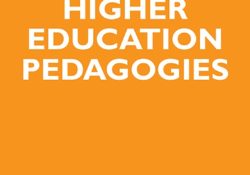
tandfonline.com har udgivet en rapport under søgningen “Teacher Education Mathematics”: ABSTRACT ABSTRACT There have been calls for Science Technology Engineering and Mathematics (STEM) education to become more interdisciplinary, reflecting the reality of contemporary research. However, communicating across disciplines is challenging. In this article, I explore what and how students read in the STEM disciplines`. I provide an overview of key topics in literacy research, and discuss the disciplinary nature of literacy. I compare disciplinary literacy requirements in STEM through thematic analysis of UK quality subject benchmark statements, which identifies considerable variation in the expectations of undergraduates to engage with primary research literature. I explore implications this has for interdisciplinary teaching, and present some published pedagogical strategies for engaging students in research literature. I call on STEM educators to embed inclusive… Continue Reading →
Like this:
Like Loading...
tandfonline.com har udgivet en rapport under søgningen “Teacher Education Mathematics”: Patterns of Development in Children’s Scientific Reasoning: Results from a Three-Year Longitudinal Study Link til kilde
Like this:
Like Loading...
tandfonline.com har udgivet en rapport under søgningen “Teacher Education Mathematics”: ABSTRACT ABSTRACT In times of climate change, worldwide diseases, and the question of sustainable energy, scientific literacy has never been more important. The acquisition of scientific literacy starts in early childhood and depends on children’s experiences in learning environments such as the parental home and kindergarten. The Starting Cohort 2 of the German National Educational Panel Study offers longitudinal data on the scientific literacy of 2,937 children from kindergarten to the third grade of primary school. We used linear latent growth curve models to analyse the data. The results show that the scientific literacy of kindergarten children grew over time and that kindergarten children already differed in their scientific literacy. Especially children from non-German-speaking homes or whose parents had lower… Continue Reading →
Like this:
Like Loading...
tandfonline.com har udgivet en rapport under søgningen “Teacher Education Mathematics”: ABSTRACT ABSTRACT In 2010, Sweden was the first country in the world to introduce a legal requirement that education should be research-based, placing huge demands on schools. The study’s aim is to explore how, through sensemaking, teachers and principals enact this policy in schools. In total, 272 teachers and 23 principals from pre-schools, leisure-time centers, compulsory schools, and upper secondary schools completed a questionnaire. The findings show the need for understanding central policy concepts, alignment with previous experiences, and a social context within which the policy can be understood, negotiated, and enacted. Policy enactment was dependent on the support given – professional development, time, and financial resources. Teachers and principals have so far experienced challenges and opportunities – a rewarding if… Continue Reading →
Like this:
Like Loading...

tandfonline.com har udgivet en rapport under søgningen “Teacher Education Mathematics”: Abstract Abstract In this article we examine a teacher’s and multilingual students’ use of multiple resources and their potential for students’ meaning-making of sound and sound transmission. Students were 14–15 years old, Swedish grade 8, speaking Swedish as a second language. We examine how different strategies and multiple resources interact in creating thematic patterns in a multilingual science classroom. Data comprise 64 hours of video- and audio recordings, digital photos, field-notes, textbooks, worksheets and student notebooks. As analytical tools we use thematic development strategies, control and social interaction strategies as well as strategies of bridging multiple resources. In co-constructing the content using various resources, thematic patterns were developed through a continuous shift between everyday and scientific language due to the teacher’s awareness… Continue Reading →
Like this:
Like Loading...
eric.ed.gov har udgivet: Children’s learning of early number bonds is a significant issue in South African schools because evidence shows that flexible and efficient (fluent and reasoned) knowledge of number bonds to 20 correlates with success at the end of primary schooling, yet the evidence is that many South African students are over-reliant on inefficient counting methods. This paper focuses on why and how treating early number bonds as scientific concepts may be the key to raising learners’ attainment in these. The paper argues that teacher mediation is crucial and that mediation for learning scientific concepts has to be meaningful, relational and transcendent. This theoretical position is illustrated with examples from a dynamic assessment interview with a Grade 2 learner carried out as part of the Wits Maths Connect —… Continue Reading →
Like this:
Like Loading...
tandfonline.com har udgivet en rapport under søgningen “Teacher Education Mathematics”: The distribution of ethical labor in the scientific community Link til kilde
Like this:
Like Loading...


